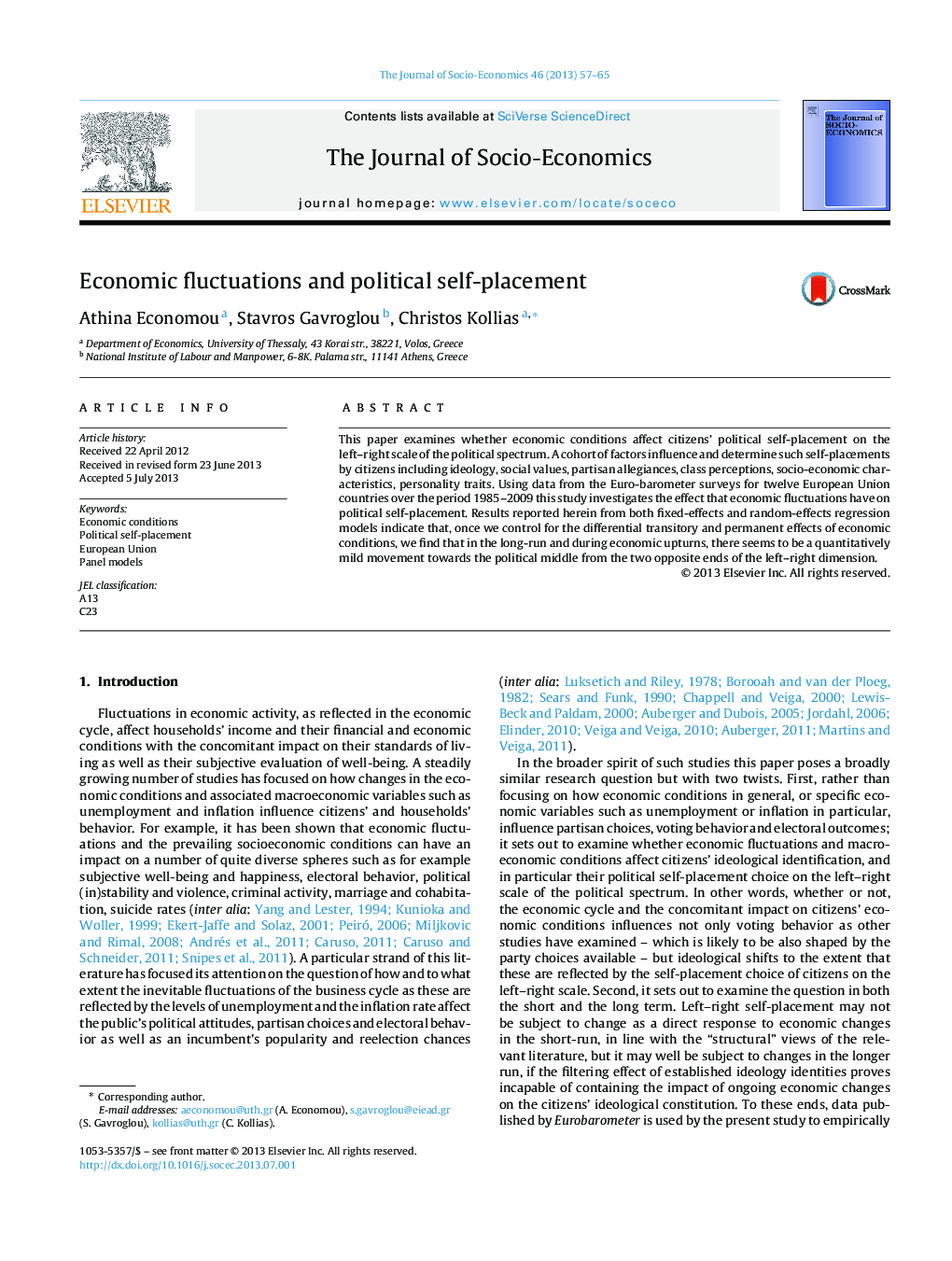| Article ID | Journal | Published Year | Pages | File Type |
|---|---|---|---|---|
| 7370603 | The Journal of Socio-Economics | 2013 | 9 Pages |
Abstract
This paper examines whether economic conditions affect citizens' political self-placement on the left-right scale of the political spectrum. A cohort of factors influence and determine such self-placements by citizens including ideology, social values, partisan allegiances, class perceptions, socio-economic characteristics, personality traits. Using data from the Euro-barometer surveys for twelve European Union countries over the period 1985-2009 this study investigates the effect that economic fluctuations have on political self-placement. Results reported herein from both fixed-effects and random-effects regression models indicate that, once we control for the differential transitory and permanent effects of economic conditions, we find that in the long-run and during economic upturns, there seems to be a quantitatively mild movement towards the political middle from the two opposite ends of the left-right dimension.
Related Topics
Social Sciences and Humanities
Economics, Econometrics and Finance
Economics and Econometrics
Authors
Athina Economou, Stavros Gavroglou, Christos Kollias,
